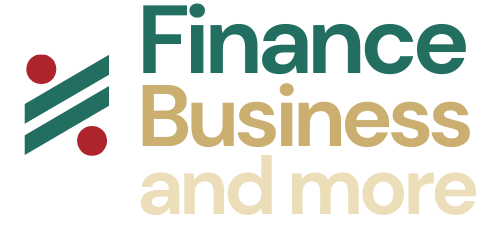In the world of small business ownership and fleet management, safeguarding your assets is crucial. One of the best ways to do this is through fleet insurance, a specialized form of protection that ensures your vehicles and drivers are covered in various situations. In this blog post, we’ll explore the essentials of fleet insurance, its importance, the types of coverage available, factors affecting premiums, and more. By the end, you’ll have a solid understanding of fleet insurance and how it can benefit your business.
Introduction to Fleet Insurance: Understanding the Basics
Fleet insurance covers multiple vehicles under a single policy. It simplifies managing insurance for businesses that own several vehicles, whether cars, vans, or trucks. Instead of keeping track of multiple renewal dates and policies, fleet insurance offers a streamlined solution.
Fleet insurance isn’t just about convenience; it’s also about ensuring comprehensive coverage. This type of insurance typically includes liability coverage, collision coverage, and comprehensive coverage. These protections can save businesses from significant financial losses in the event of an accident, theft, or other unforeseen events.
Understanding the basics of fleet insurance is essential for anyone managing a business with multiple vehicles. It helps in making informed decisions that protect the company’s assets and ensure smooth operations.
Importance for Small Businesses and Fleet Managers
For small businesses and fleet managers, fleet insurance is invaluable. It provides peace of mind knowing that your vehicles and drivers are protected. This protection is especially important for small businesses, where even a single accident can have substantial financial repercussions.
Fleet insurance also helps in maintaining business continuity. In case of an accident, having insurance means that your business can recover quickly without bearing the full cost of repairs or replacements. This quick recovery is crucial for maintaining customer trust and ensuring that business operations are not severely disrupted.
Additionally, fleet insurance often comes with added benefits like access to preferred repair shops, rental vehicle reimbursement, and roadside assistance. These services can make a significant difference in reducing downtime and keeping your fleet running smoothly.
Types of Fleet Insurance Coverage
Understanding the different types of fleet insurance coverage is key to choosing the right policy for your business. The common types of coverage include:
Liability Coverage
Liability coverage is essential as it protects your business from financial loss if one of your drivers is found at fault in an accident. It covers bodily injury and property damage to third parties.
Collision Coverage
Collision coverage pays for damage to your vehicles resulting from an accident, regardless of who is at fault. This coverage is crucial for businesses that rely heavily on their fleet for daily operations.
Comprehensive Coverage
Comprehensive coverage protects against non-collision-related incidents such as theft, vandalism, natural disasters, and fire. It ensures that your vehicles are covered for a wide range of potential risks.
Uninsured/Underinsured Motorist Coverage
This type of coverage is vital for protecting your business against drivers who either don’t have insurance or don’t have enough insurance to cover the damages they cause.
Medical Payments Coverage
Medical payments coverage helps cover medical expenses for your drivers and passengers in case of an accident. This coverage is particularly important to ensure the well-being of your employees.
Factors Affecting Fleet Insurance Premiums
Several factors can influence the cost of your fleet insurance premiums. Understanding these factors can help you manage costs effectively.
Driver History
The driving records of your employees play a significant role in determining your premiums. Drivers with clean records typically lead to lower insurance costs.
Vehicle Type and Usage
The type of vehicles you own and how they are used also impact your premiums. Commercial trucks, for example, might cost more to insure than passenger cars due to their size and usage.
Coverage Limits and Deductibles
Higher coverage limits and lower deductibles typically result in higher premiums. Finding the right balance between adequate coverage and affordable premiums is crucial.
Geographic Location
Where your business operates can affect insurance costs. Areas with higher traffic density or higher rates of accidents and thefts usually lead to higher premiums.
Safety Measures
Implementing safety measures such as driver training programs, GPS tracking, and anti-theft devices can help reduce your premiums by mitigating risks.
Tips for Choosing the Right Fleet Insurance
Selecting the right fleet insurance policy requires careful consideration of various factors. Here are some tips to help you make an informed decision.
Assess Your Needs
Evaluate the specific needs of your business, including the types of vehicles you operate, the distance they travel, and the nature of your business operations.
Compare Quotes
Don’t settle for the first insurance quote you receive. Comparing quotes from multiple providers can help you find the best coverage at the most competitive price.
Check for Discounts
Many insurers offer discounts for businesses that implement safety measures or have a good claims history. Be sure to inquire about any available discounts.
Read the Fine Print
Understanding the terms and conditions of your policy is crucial. Make sure you know what is covered, what is excluded, and any additional benefits offered.
Consult an Expert
Insurance can be complex, so consulting with an insurance professional can provide valuable insights and help you choose the right policy for your business.
Case Studies: Real-life Examples of Fleet Insurance Benefits
Real-life examples can illustrate the tangible benefits of fleet insurance. Here are a few case studies that highlight its importance.
Case Study 1: Small Delivery Business
A small delivery business with a fleet of ten vans faced a severe accident involving one of their drivers. Thanks to their comprehensive fleet insurance, the business was able to cover the repair costs and medical expenses without significant financial strain.
Case Study 2: Construction Company
A construction company experienced theft of several work trucks. With their fleet insurance policy, they received compensation for the stolen vehicles, allowing them to quickly replace the trucks and continue their projects without major delays.
Case Study 3: Landscaping Business
A landscaping business that implemented a driver safety program saw a reduction in accidents and subsequently received lower insurance premiums. This proactive approach not only improved safety but also resulted in cost savings.
Future of Fleet Insurance and Innovative Solutions
The future of fleet insurance is bright, with several innovative solutions on the horizon.
Telematics
Telematics technology allows for real-time monitoring of vehicle performance and driver behavior. This data can be used to improve safety and reduce insurance premiums.
Usage-Based Insurance
Usage-based insurance models charge premiums based on actual vehicle usage, providing a fairer pricing structure for businesses with varying levels of vehicle activity.
AI and Machine Learning
AI and machine learning are being used to analyze data and predict risks more accurately. This innovation can lead to more personalized and cost-effective insurance solutions.
Conclusion
Fleet insurance is a critical component for small businesses and fleet managers. It not only protects your vehicles and drivers but also ensures business continuity and financial stability. By understanding the different types of coverage, factors affecting premiums, and tips for choosing the right policy, you can make informed decisions that benefit your business.
Investing in fleet insurance is not just about compliance; it’s about safeguarding your business’s future. Start exploring your options today and secure the peace of mind that comes with comprehensive fleet insurance. And for those who want personalized guidance, consider consulting with an insurance professional to tailor the best policy for your needs.


